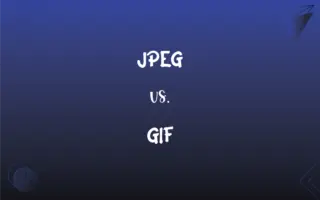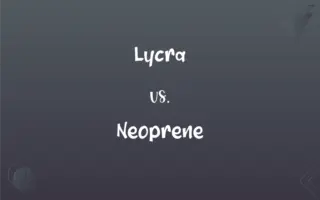Call Option vs. Put Option: What's the Difference?
Edited by Harlon Moss || By Janet White || Published on February 6, 2024
A call option gives the holder the right to buy an asset at a set price, while a put option gives the right to sell an asset at a set price.

Key Differences
Call Option financial derivative grants the buyer the right, but not the obligation, to purchase a stock or other asset at a specified price (the strike price) within a certain time frame. The buyer of a call option anticipates that the asset's price will rise. Conversely, a put option gives the buyer the right to sell a stock or asset at the strike price within a designated period. In this scenario, the buyer expects that the asset's price will decline.
The value of a call option increases as the market price of the underlying asset increases. Investors buy call options when they are bullish on the asset. On the other hand, the value of a put option increases as the market price of the underlying asset decreases. Investors buy put options when they are bearish or expect the market to fall.
If the market price is above the strike price at expiration, the call option is 'in the money', and the holder can profit by exercising the option. For a put option, if the market price is below the strike price, the option is 'in the money', and exercising it allows the holder to profit by selling the asset above its market value.
The risk for the buyer of a call option is limited to the premium paid for the option. Similarly, for a put option, the buyer's risk is confined to the premium paid, but they can potentially profit from a declining market.
Comparison Chart
Right Granted
To buy an asset at a set price.
To sell an asset at a set price.
ADVERTISEMENT
Market Expectation
Bullish, expecting the asset's price to rise.
Bearish, expecting the asset's price to fall.
Value Increase
When the underlying asset's price rises.
When the underlying asset's price falls.
Condition for Profit
Profitable if market price exceeds strike price.
Profitable if market price is below strike price.
Risk
Limited to the premium paid.
Limited to the premium paid.
Call Option and Put Option Definitions
Call Option
A trading strategy used to leverage gains in a bullish market.
She used a call option to enhance her portfolio's performance.
ADVERTISEMENT
Put Option
A contract granting the right to sell an asset at a specified price.
He bought a put option to hedge against potential stock price declines.
Call Option
A financial instrument that allows speculation on rising asset prices.
Using a call option, she capitalized on the market's upward movement.
Put Option
A derivative that allows the holder to sell assets at a pre-agreed price.
He exercised his put option and sold his shares above the market price.
Call Option
An option contract where the buyer bets on an asset's price increase.
The investor’s call option became profitable as the stock price soared.
Put Option
An option contract where the buyer anticipates a decrease in asset prices.
The investor profited from the put option when the market fell sharply.
Call Option
A derivative that gives the holder the option to purchase assets at a set price.
He exercised his call option when the market price exceeded the strike price.
Put Option
A financial tool for speculating on or hedging against falling asset prices.
She purchased a put option as insurance against her stock holdings.
Call Option
A contract giving the right to buy an asset at a predetermined price.
He bought a call option expecting the stock price to rise.
Put Option
A trading strategy for benefiting from bearish market trends.
Using a put option, she offset losses in her portfolio during the downturn.
FAQs
When do investors buy call options?
Investors buy call options when they anticipate an increase in the asset's price.
What does the strike price mean in a put option?
In a put option, it's the price at which the asset can be sold.
What is a put option?
A put option is a contract allowing the sale of an asset at a predetermined price within a set period.
When are put options purchased?
Put options are bought when an investor expects a decrease in the asset's price.
How does a put option generate profit?
Profit happens when the market price is below the strike price at or before expiration.
Can you sell a call option before expiration?
Yes, call options can be sold before they expire.
What is the strike price in a call option?
It's the pre-determined price at which the asset can be bought under the call option.
How does a call option make a profit?
Profit occurs when the market price exceeds the strike price at or before expiration.
Can a put option be sold early?
Yes, put options can be sold prior to expiration.
What is a call option?
A call option is a contract giving the right to buy an asset at a set price within a specific time.
What is the risk in buying a call option?
The risk is limited to the premium paid for the option.
Are call options only for stocks?
No, call options can be for various assets, including commodities and indexes.
What factors affect the price of a call option?
Factors include the underlying asset's price, time to expiration, and market volatility.
What is the risk in buying a put option?
The risk is confined to the premium paid for purchasing the put option.
What happens if a call option is not exercised?
It expires worthless, and the buyer loses the premium paid.
Is owning a call option the same as owning the stock?
No, owning a call option does not equate to owning the stock itself.
Can put options be used on assets other than stocks?
Yes, they can be used on different assets like commodities and indexes.
What influences the price of a put option?
The price is influenced by the asset's market price, time to expiration, and volatility.
What occurs if a put option is not exercised?
The put option expires worthless, with the premium paid being the loss.
Does owning a put option mean you own the underlying asset?
No, it only gives the right to sell the asset, not ownership of it.
About Author
Written by
Janet WhiteJanet White has been an esteemed writer and blogger for Difference Wiki. Holding a Master's degree in Science and Medical Journalism from the prestigious Boston University, she has consistently demonstrated her expertise and passion for her field. When she's not immersed in her work, Janet relishes her time exercising, delving into a good book, and cherishing moments with friends and family.
Edited by
Harlon MossHarlon is a seasoned quality moderator and accomplished content writer for Difference Wiki. An alumnus of the prestigious University of California, he earned his degree in Computer Science. Leveraging his academic background, Harlon brings a meticulous and informed perspective to his work, ensuring content accuracy and excellence.
































































